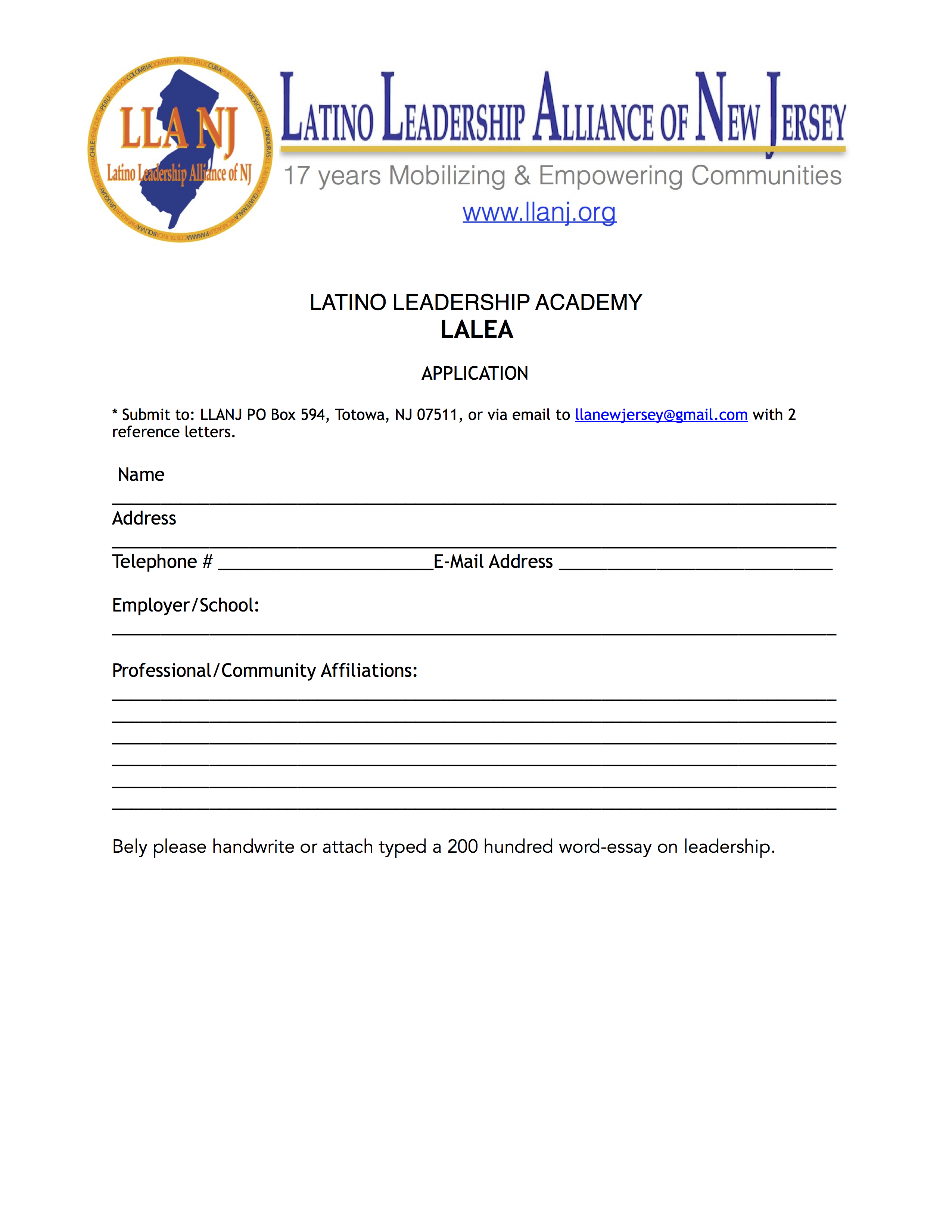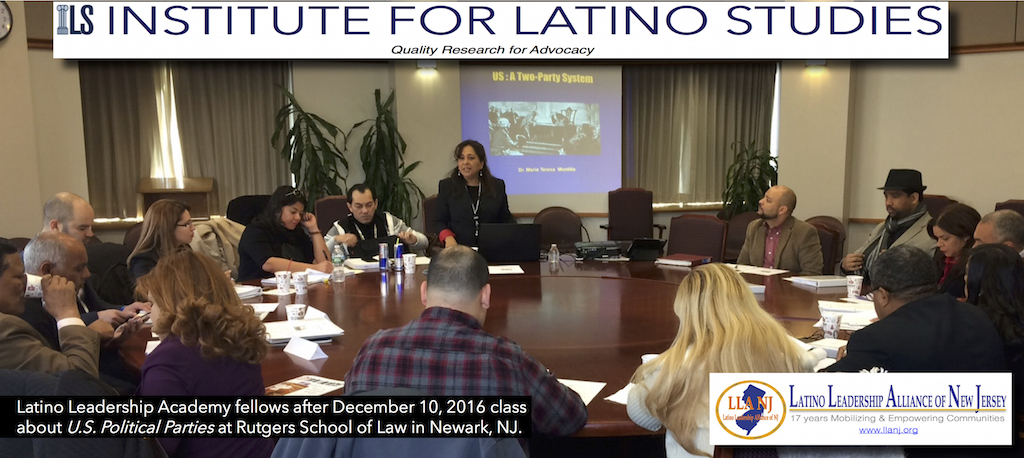
Trenton, NJ (Saturday, December 10, 2016).– The Latino Leadership Academy (LALEA) held its seminar on US Two-Party System, on Saturday, December 10th at Rutgers School of Law – Center for Law & Justice, 123 Washington, Street Newark, NJ.
The session included the history of the two-party system, the parties’ current structure, how the system works across USA and in New Jersey; and how it currently serves/represents voters’ interests.
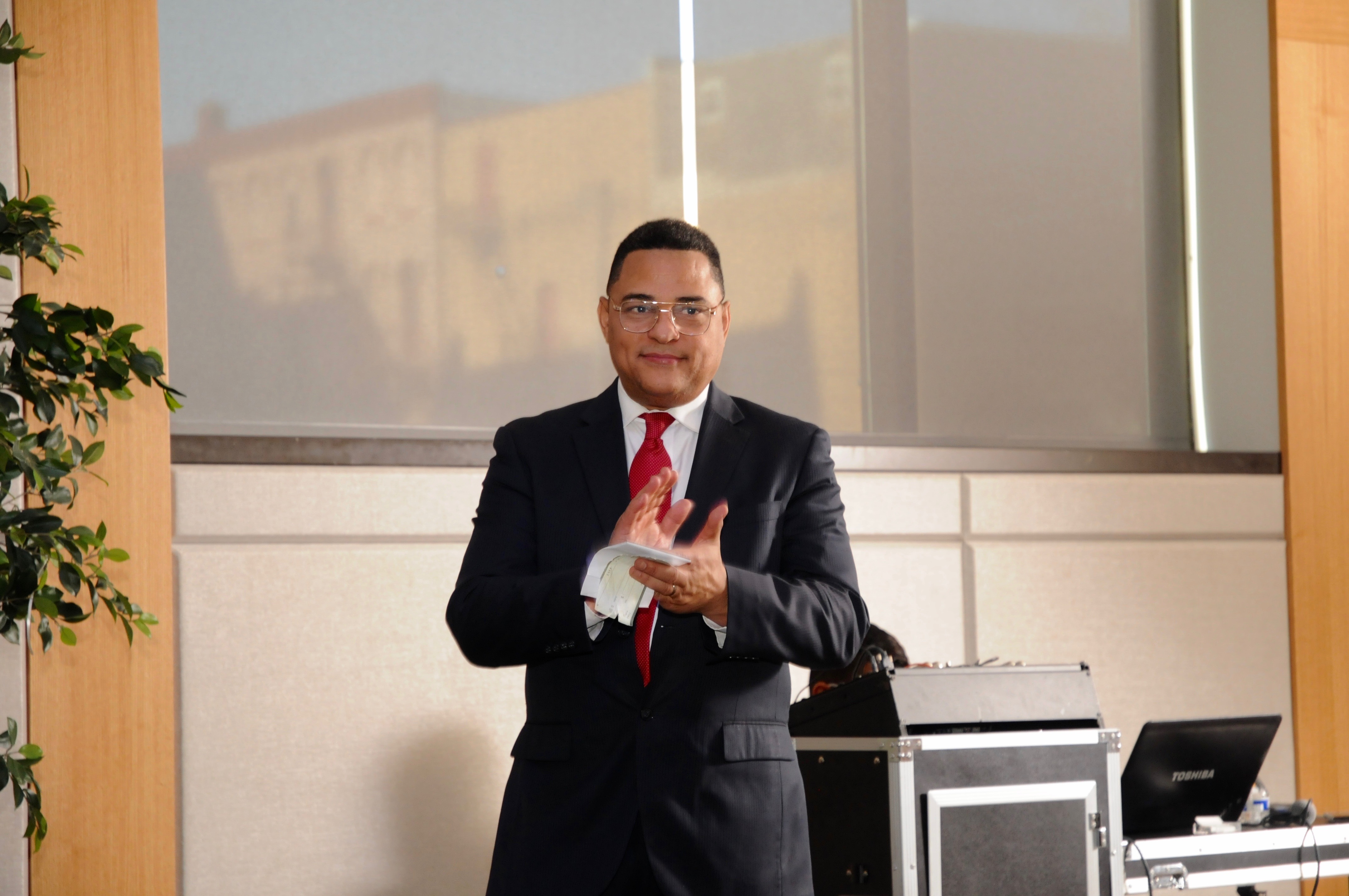
The seminar’s presenter, Nestor Montilla, Sr., outlined the historical components, contemporary composition, and challenges of the US party system today:
“The U.S. Constitution doesn’t refer to parties. The first four Congress and the first President, George Washington, were non-partisan. Partisanship began after both the Federalist and the Democratic-Republican parties were created in the decade of the 1790s. The Federalist Party supported President Washington’s agenda of maintaining a strong central government, while the Democratic-Republican Party advocated for state rights.
Eventually, the Federalist Party was dissolved. The Democratic-Republican Party remained active, but it ended up splitting into two parties: the Democratic Party and the National Republican Party, which was also known as the Whigs. Subsequently, the issue of slavery split the Whigs in two factions: the Conscience Whigs (antislavery) and the Cotton Whigs (proslavery).
The antislavery Conscience Whigs from the North helped found what’s known today as the Republican Party; and the proslavery Cotton Whigs from the South became members and leaders of the Democratic Party.” —Nestor Montilla, Sr.
Fellows of the Latino Leadership Academy Class of 2017 remained engaged throughout the seminar, as Montilla, Sr., explained the formation and development of US political parties. They actively participated in discussions, asking questions and expressing their views regarding functioning, similarities and differences of the US two major parties. There was an animated review of how the Democratic and Republican Parties have historically dominated the U.S. government and how U.S. power elites have managed to perpetuate the two-party system since its inception in the decade of the 1790s, to the present.
As per course requirement, fellow Maria Isabel Alarcon moderated the seminar, while fellows Sebastian Rodriguez and Jose Colon made presentations about the U.S. two-party system. Rodriguez outlined the evolving philosophy of the democratic party, while Colon focused on partisan membership denoting that since the 1940s, unaffiliated voters have increased to the point of surpassing the number of voters registered as Democrats, Republicans or in third parties. His powerpoint presentation to the class included the following graph depicting trends in Party Identification in the USA from 1939 to 2014.
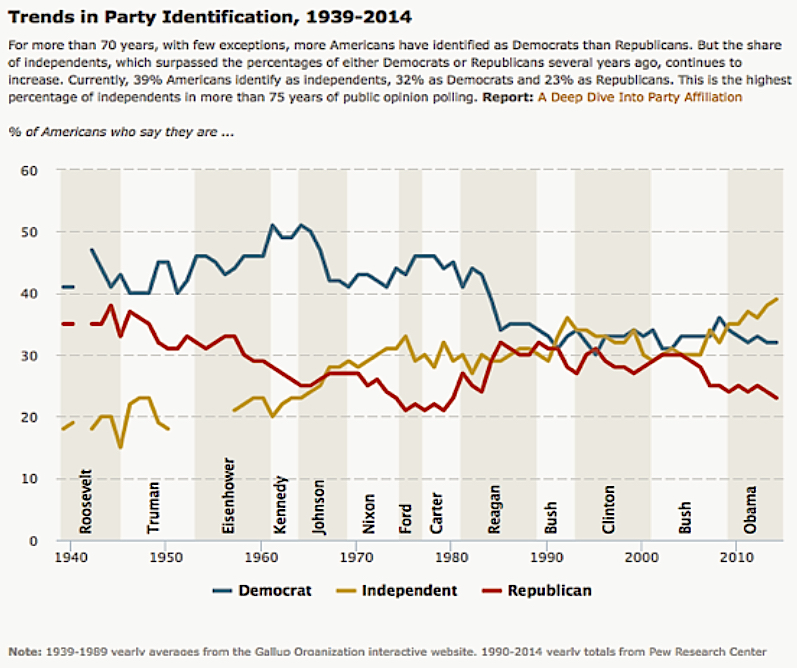
Next seminar on Criminal Justice, which will include a class trip to the New Jersey State Prison in Trenton, will be held on Saturday, January 14, 2017 at the Morris County Public Safety Training Center in Parsippany, NJ, where fellows will participate in the VirTra Use of Force Simulator know also as Shooting Simulator. They will be allowed into a five large screen 300-degree immersive simulator equipped with audio-visual software, to experience how law enforcement officers react and make fast decisions in the real world when facing situations involving firearms, use of force scenarios and violence.
The Latino Leadership Academy graduation is slated to take place in May 2017.
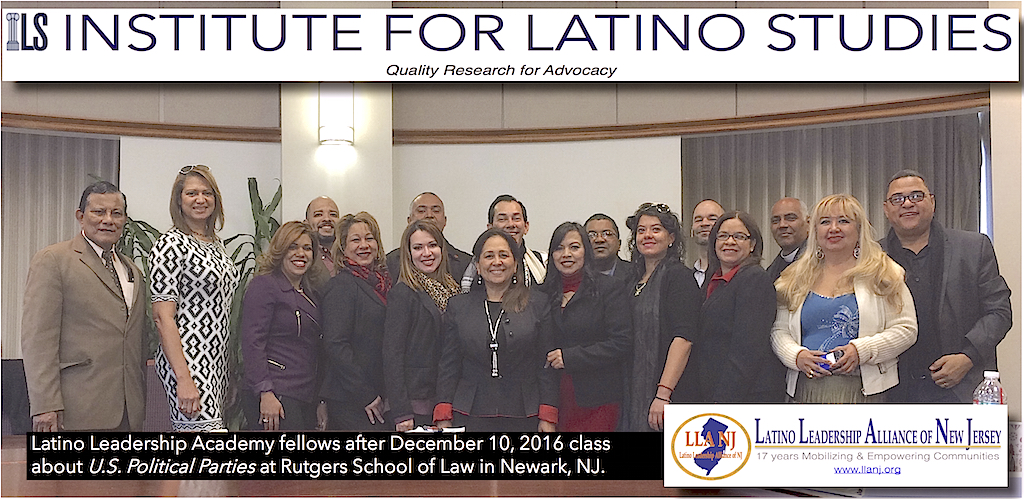
About Nestor Montilla, Sr.
Nestor Montilla is a national leader and scholar who has dedicated his life to advocate for the socio-economic and political advancement of U.S. diverse communities. Currently, he works at Lehman College of The City University of New York (CUNY). His has worked at the University in different capacities including as Lehman College director of government relations and community development, director of public relations, director of corporate and community relations, director of special events for corporate development, assistant director for international programs and community relations, faculty member, and television producer for public affairs.
His commitments and community service activities have included serving as appointed member of community planning boards of New York City in Manhattan and the Bronx; board member of the Latino Leadership Alliance of New Jersey, and the Institute for Latino Studies. He has been president of national nonpartisan, nonprofit advocacy organizations. Currently, he is chairman of The Dominican American National Roundtable (danr.org), a nonprofit, nonpartisan organization advocating for the advancement of Dominicans in the United States.
He has also spearheaded dozens of national conventions and community empowerment initiatives, including developing and implementing national external relations programs, advocating for redistricting reform for fair political representation, running for congress in New Jersey for the U.S. House of Representatives, and directing the Latino Leadership Academy, an ongoing 10-session course training the a new generation of leaders in the Tristate area.
His academic credentials include AAS, BA and a Master of Public Administration with specialization in human resources and management, and Ph.D. studies in Political Science with concentration on American Government and public policy.
His publications include books and several documentaries about the immigration experience in the Americas.
About LALEA
VIDEO Video 2 Fellows Go to Washington, DC
Led by seasoned experts and scholars, the Latino Leadership Academy (LALEA) seminars are held at field related sites across the state, and favor a practicum approach to training.
Topics covered by the course include Latino History and Contribution to United States, US Government, Leadership Styles, Values & Ethics in Public Service, Education, A two-party System, Criminal Justice, Health, Social Services & Economic Development, Public Speaking and Media, and a special session on Running a Political Campaign.
Fellows are strategically advised on awareness of key community issues, concerns, needs and opportunities involving those in leadership roles; and are motivated to take on leadership roles in the public, private and nonprofit sectors to influence actions that have a positive impact on the community as a whole.
Participants in The Academy are selected based on their professional and community involvement and background, as well as their commitment to submit to the rigors of intense and demanding leadership development training. Since its beginning in June 11, 2016, the program meets second Saturday of the month.
The Latino Leadership Academy is an unprecedented collaborative partnership between the Institute for Latino Studies (ILS) and the Latino Leadership Alliance of New Jersey (LLANJ) to develop leaders that may serve the community in a more holistic and independent manner.
Participants of the Latino Leadership Academy acquire theoretical knowledge, as well as hands-on experience. The program is intense by design to simulate the rigors and challenges of actual leadership. It helps participants develop, improve poise, and confidence in their leadership role.
LALEA is an initiative of the Institute for Latino Studies and the Latino Leadership Academy.
Application for LALEA class of 2018 is now open via llanj.org: lalea-application. Course will begin in September 2017. Apply now via http://www.llanj.org/2016/12/11/registration-open-for-the-leadership-academy-class-2018/

